
Choosing a Hospice: 6 Factors that Matter Most to Healthcare Providers
This blog highlights 6 factors when choosing a hospice provider
Continue reading
This blog highlights 6 factors when choosing a hospice provider
Continue reading
If a loved one or you are seriously ill, talking about hospice care may feel like giving up. Perhaps you have heard myths such as hospice will end life more quickly or that it’s mainly for people with cancer. Maybe you’ve heard that hospice care is expensive or needs to be given in a specific…
Continue reading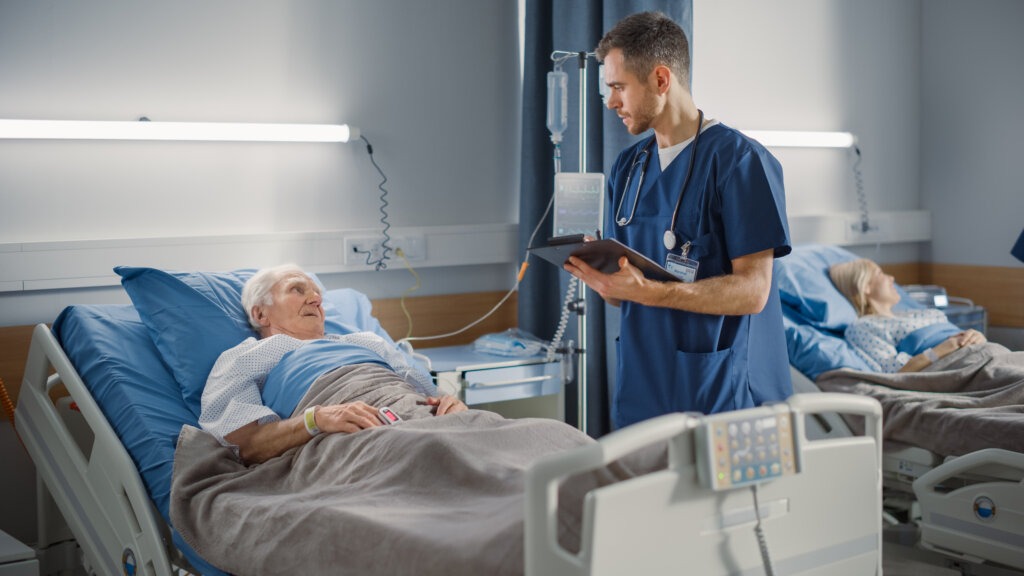
While providing hospice care in the home is the most desired by patients and families and accounts for virtually most care under hospice, hospice GIP is a hospice level of care that is an effective short-term solution for patients in crisis. Unity partners with hospitals and skilled nursing facilities to expertly manage hospice patients whose pain or symptoms cannot be managed at home. Read on to learn how GIP care works and who is eligible to receive it.
Continue reading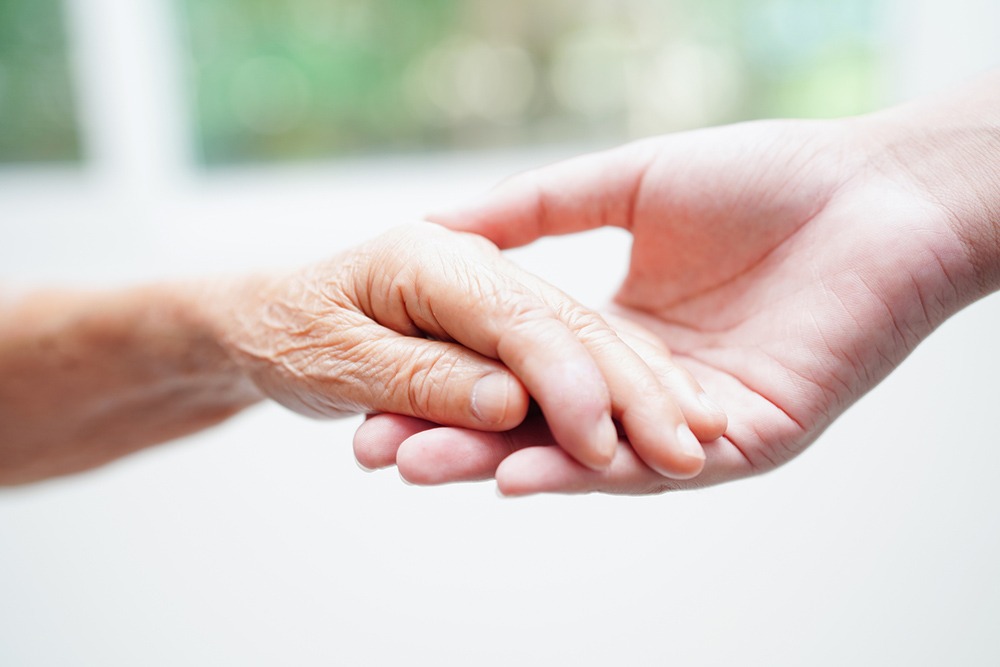
By Joe Green, Assistant Director of Support Services/Lead Chaplain Hello there! I’m Joe Green, Assistant Director of Support Services and Lead Chaplain at Unity Hospice and Palliative Care. I’m here to talk about a vital member of your Hospice Care Team: the hospice chaplain. You may hear common responses like, “We are not religious,” or…
Continue reading
Heart Disease: A Leading Cause of Death in the U.S. Heart disease remains the leading cause of death in the United States, responsible for nearly 697,000 deaths annually—about 1 in every 5 deaths. Among cardiovascular conditions, heart failure is a major contributor to mortality and morbidity, affecting approximately 6.7 million Americans over age 20. Despite…
Continue reading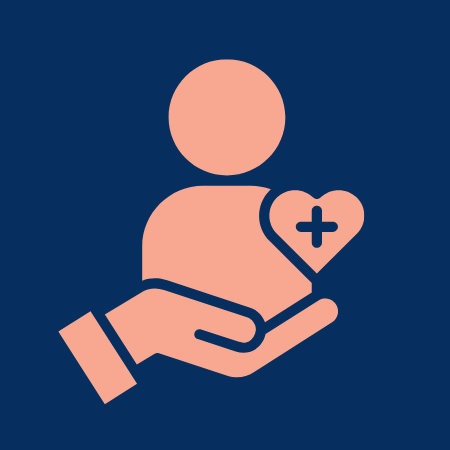
Patient-centered care isn’t just an idea—it’s a way of providing healthcare that puts patients’ needs, values, and choices at the heart of every decision. For case managers, social workers, and nurses, especially those helping patients transition to hospice, this approach can transform care experiences for everyone involved. By prioritizing respect, collaboration, and compassion, patient-centered care…
Continue reading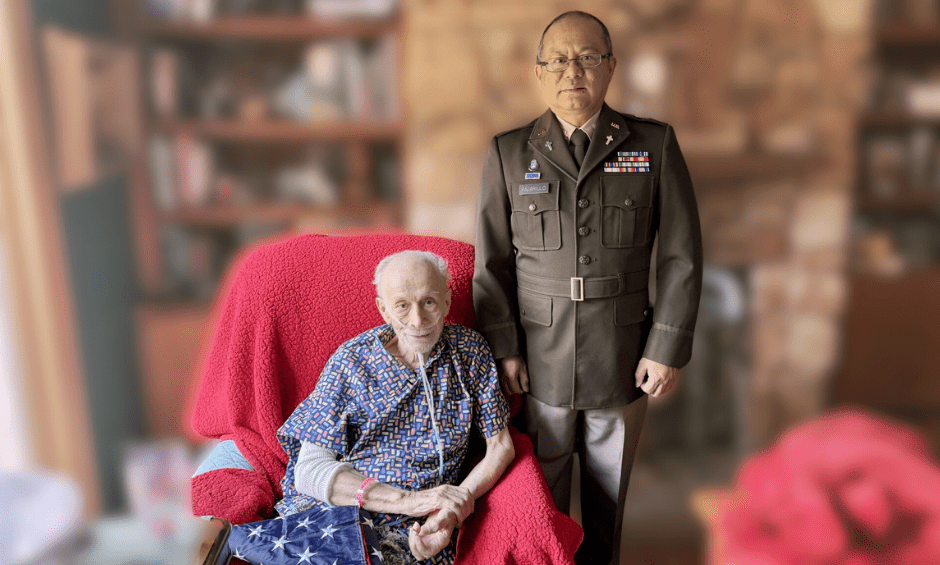
Honoring Our Veterans: Unity’s Commitment to Individualized Hospice Care This Veterans Day, and every day, Unity Hospice and Palliative Care honors the service of over 18.2 million Veterans living in the United States. These brave people have made immense sacrifices. They deserve end-of-life care that respects their unique experiences and supports their needs. Unity Hospice…
Continue reading
Unity Hospice and Palliative Care, a leader in end-of-life care, announced today that it has signed an agreement with Northwestern Medicine to become a member of its Post-Acute Network (PAN). Unity specializes in providing exceptional hospice and palliative care to people with serious illnesses. Unity’s membership in Northwestern Medicine’s PAN offers many benefits to patients and…
Continue reading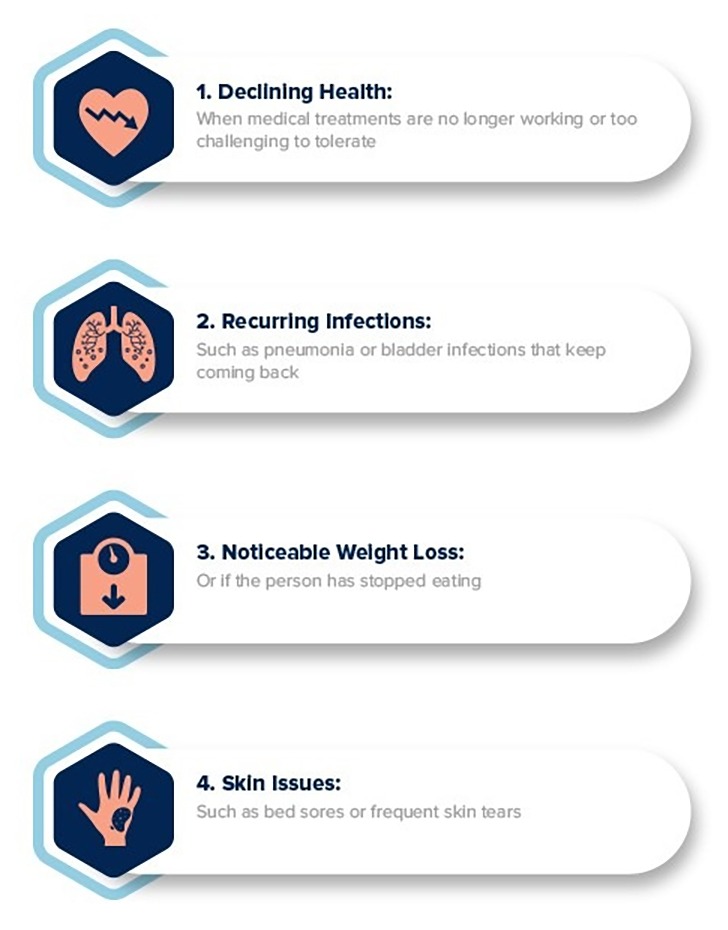
Look for These 12 Common Indicators – if you notice at least 3 of these, consider hospice for additional comfort and support. Hospice is a special kind of care that focuses on quality of life for people with serious illnesses who have been diagnosed with six months or less to live. Research shows that starting hospice care sooner can provide better symptom relief, success with pain management and quality end-of-life care.
Continue reading
Alzheimer’s disease is the most common form of dementia, affecting more than 6 million Americans over age 65. A progressive brain disorder, Alzheimer’s disease slowly destroys memory and thinking skills, and eventually, the ability to perform simple tasks. Although, there is no cure for Alzheimer’s did you know that music may have the remarkable ability…
Continue reading
While providing hospice care in the home is the most desired by patients and families and accounts for virtually most care under hospice, hospice GIP is a hospice level of care that is an effective short-term solution for patients in crisis. Unity partners with hospitals and skilled nursing facilities to expertly manage hospice patients whose pain or symptoms cannot be managed at home. Read on to learn how GIP care works and who is eligible to receive it.
Continue readingUpdate your browser to view this website correctly. Update my browser now